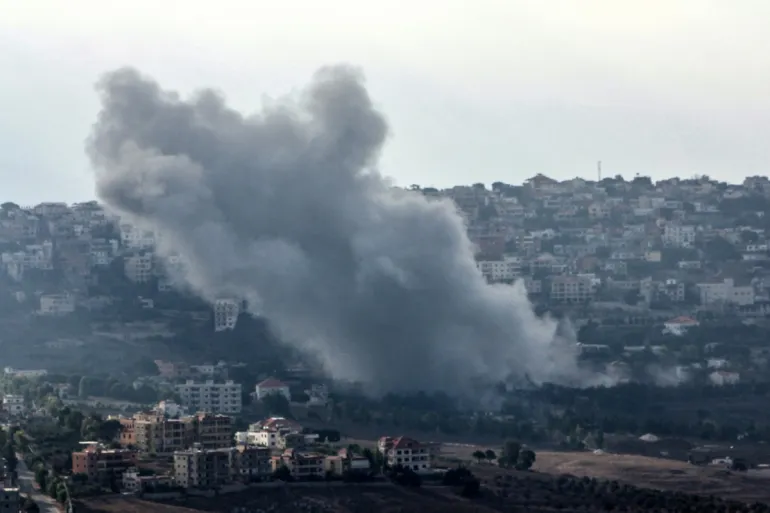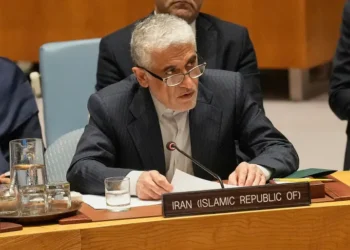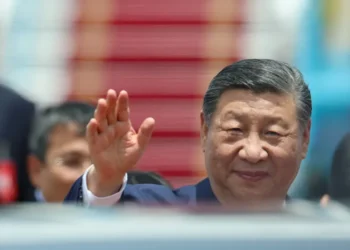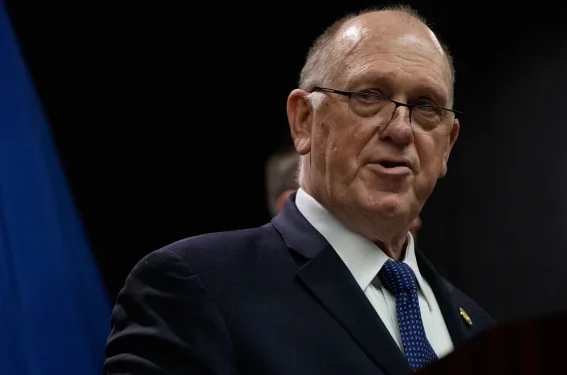Global fears of a full-scale war in the Middle East due to intensifying conflict between Israel and Hezbollah has been confirmed.
Military action, while sometimes viewed as necessary for self-defense, rarely leads to lasting peace. Diplomatic engagement is essential, yet it remains stymied by entrenched positions on both sides.
The Israeli military announced on Monday, September 23, 2024, that it was conducting extensive strikes against Hezbollah targets in Lebanon and urged villagers near areas used by the militant group in the country’s south to evacuate.
The strikes come amid some of the heaviest cross-border exchanges of fire in nearly a year of conflict.
The Chief Israeli military Spokesperson, Rear Admiral Daniel Hagari, said in a video posted on X that the Israel Defense Forces had begun “striking terrorist targets throughout Lebanon” after “indications that Hezbollah was preparing to fire towards Israeli territory.”
“We advise civilians in Lebanese villages located in and next to buildings and areas used by Hezbollah for military purposes – such as those used to store weapons – to immediately move out of harm’s way for their own safety.”
Daniel Hagari
Monday’s strikes came a day after the Iranian-backed Hezbollah sent rockets deep into northern Israeli territory.
The militant group fired more than 100 rockets early on Sunday across a deep and wide area of northern Israel, some landing near the city of Haifa.
The barrage came after an Israeli airstrike in Beirut on Friday killed at least 45 people, including one of Hezbollah’s top leaders.
Hezbollah Deputy Chief, Naim Qassem said at the funeral of one of the group’s commanders killed, “We have entered a new phase, the title of which is the open-ended battle of reckoning.”
While military objectives may prioritize strategic targets, the civilians caught in the crossfire are the ones who bear the brunt of this conflict.
Displacement, trauma, and loss become a part of everyday life for communities that find themselves at the center of an endless cycle of violence.
There is a lot of fear and anxiety across the Lebanese capital, Beirut.
Ordinary Lebanese people are worried that the recent developments and escalations between Hezbollah and Israel only means that they will be caught in the middle.
Most have nowhere else to go as the severe economic crisis in Lebanon is impacting their ability to be able to afford to move elsewhere in Lebanon.
Meanwhile, Amichai Chikli, the Israeli Minister for Diaspora Affairs, outlined a plan to create a “buffer zone, free of the enemy population” in southern Lebanon.
Chikli shared the plan along with a map of the Lebanese towns to be included in the zone in a lengthy post on X, describing the forcible removal of the population there as the “most just thing to do” from a security, political and moral point of view.
The Minister, who belongs to Netanyahu’s Likud party, claimed Israel would be justified in “taking over” the area because Lebanon had “failed to exercise its sovereignty” in the region.
The Lebanese towns and villages highlighted in Chikli’s buffer zone are Kfarchouba, Khiam, Marjayoun, Qlayaa, Yohmor and Taybeh.
40 Percent Of The Way To An All-Out Escalation
David Des Roches, a Professor at the National Defense University in Washington, DC, predicted that Israel would step up the use of unconventional methods of warfare against Hezbollah.
“I think we’re about 40 percent of the way to an all-out escalation. I think that it’s increasingly probable that we’ll see short targeted incursions – either airborne forces, seaborne forces or even ground-based forces moving in and out to seize specific facilities.
“This will probably be underground command control and missile research facilities that the Israelis will destroy and then withdraw.”
David Des Roches
According to the Analyst, these initial Israeli incursions would likely be “facility and equipment oriented, rather than personnel oriented”, with troops going in to take out logistical command and weapons facilities.
The troops would “probably avoid Hezbollah fighters, and then leave them without any ability to support themselves or supply themselves” he continued.
He added, “If executed properly, [these incursions] would leave Hezbollah fighters with no option but to move to a place where they can continue to fight with logistics support.”
Des Roches added that Israeli targeted attacks on Hezbollah’s leadership were also likely to continue.
READ ALSO: Brother Sammy Criticises Christians Over Lottery, Betting























